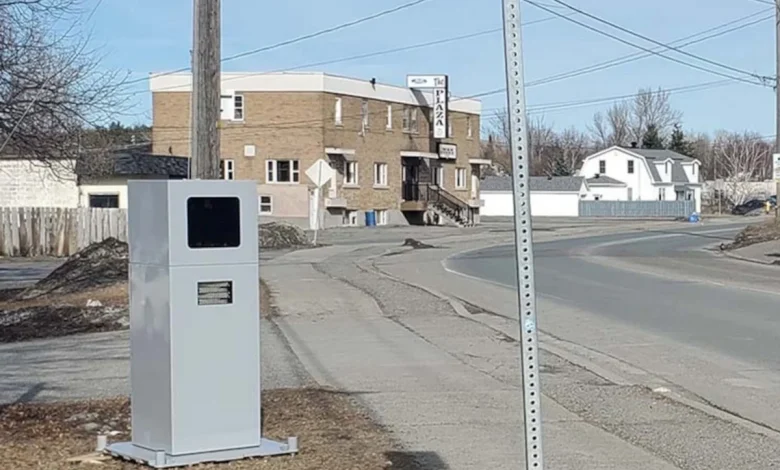City confirms speed cameras to cease operations Friday

The City of Greater Sudbury will maintain its collection of six speed cameras until the bitter end, ceasing operations by Friday, which is the provincially mandated deadline
Greater Sudbury’s automated speed enforcement cameras will no longer be active as of Friday.
City communications staff cleared up this point in correspondence with Sudbury.com this week, which clarifies that the city’s six cameras will remain active until the bitter end.
The province has mandated that municipal speed enforcement cameras cease operations by Friday.
“We are still working through the details with our partners on the wind down of the (automated speed enforcement) program to determine what supports will need to be in place over the coming months as offences continue to work their way through the Provincial Offences court system,” a city spokesperson said.
The city has projected gross revenues of approximately $2.4 million for 2025, and net revenues will not be known until the program winds down and all outstanding offenses have worked their way through the system.
In correspondence to city council members last week, city Linear Infrastructure Services director Joe Rocca estimated that approximately 20 per cent of this revenue will not be recovered, leaving $1.9 million to pay for the program’s operating costs.
“The goal of the program was to increase safety on our roadways,” the spokesperson said. “Revenues generated through the program were intended to fund road safety improvements through engineering solutions and public education initiatives.”
Indeed, city council members earmarked all traffic camera revenue toward traffic calming efforts.
Last year’s net municipal revenue resulting from the issuance of 12,796 tickets was $753,003 (total fines levied was $1,344,237).
The city’s six mobile cameras change locations every four months and became active at their latest locations on Oct. 10.
Earlier this month, Mayor Paul Lefebvre expressed support for automated speed-enforcement cameras, flagging their effectiveness at slowing traffic and “asking wrongdoers to pay for the traffic calming and not all taxpayers to pay.”
The city is advocating to the province through such wide-reaching organizations as the Association of Municipalities of Ontario in relation to speed cameras.
The association has promoted the cameras use, and following the royal assent of Bill 56, which effectively bans their use, the organization noted that they “will continue engaging the provincial government on the design of its new road safety funding program and program wind-down costs and challenges.”
The Greater Sudbury Police Service board has also advocated in favour of the cameras.
The legislation indicates that new, larger signs will need to be installed in school zones where speed cameras are in place, and suppliers and vendors are not allowed to seek costs from municipalities due to early termination of a contract.
In a news release issued Nov. 13 and in response to its banning of speed cameras, the province has pledged to spend “$210 million through the Road Safety Initiatives Fund (RSIF) to support increased road safety in school zones and community safety zones without using speed cameras that make life more expensive for drivers and taxpayers. The RSIF will instead provide financial support for proven road safety measures that do not raise costs for drivers, including traffic-calming infrastructure like speed bumps, raised crosswalks, and roundabouts as well as high visibility signage and increased police enforcement in school zones and community safety zones where municipal speed cameras were previously deployed.”
Details regarding this fund and its potential impact on Greater Sudbury have yet to be shared.
Tyler Clarke covers city hall and political affairs for Sudbury.com.





